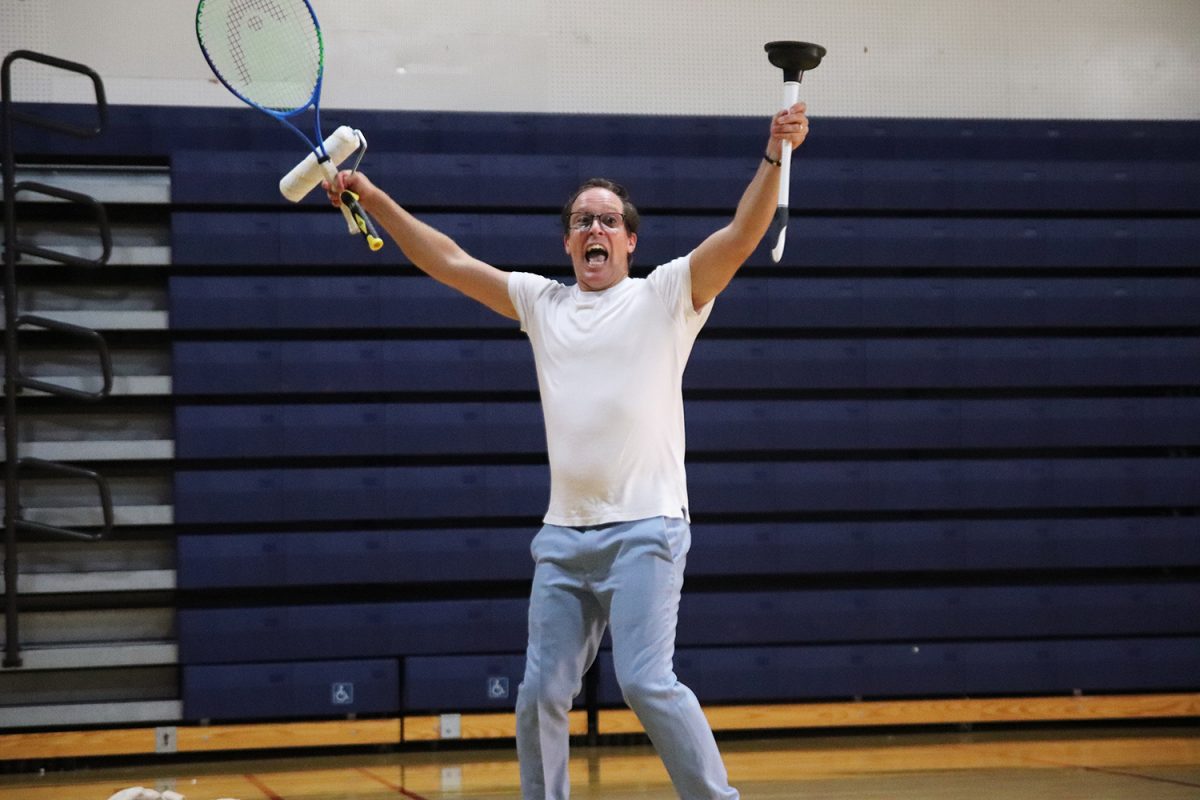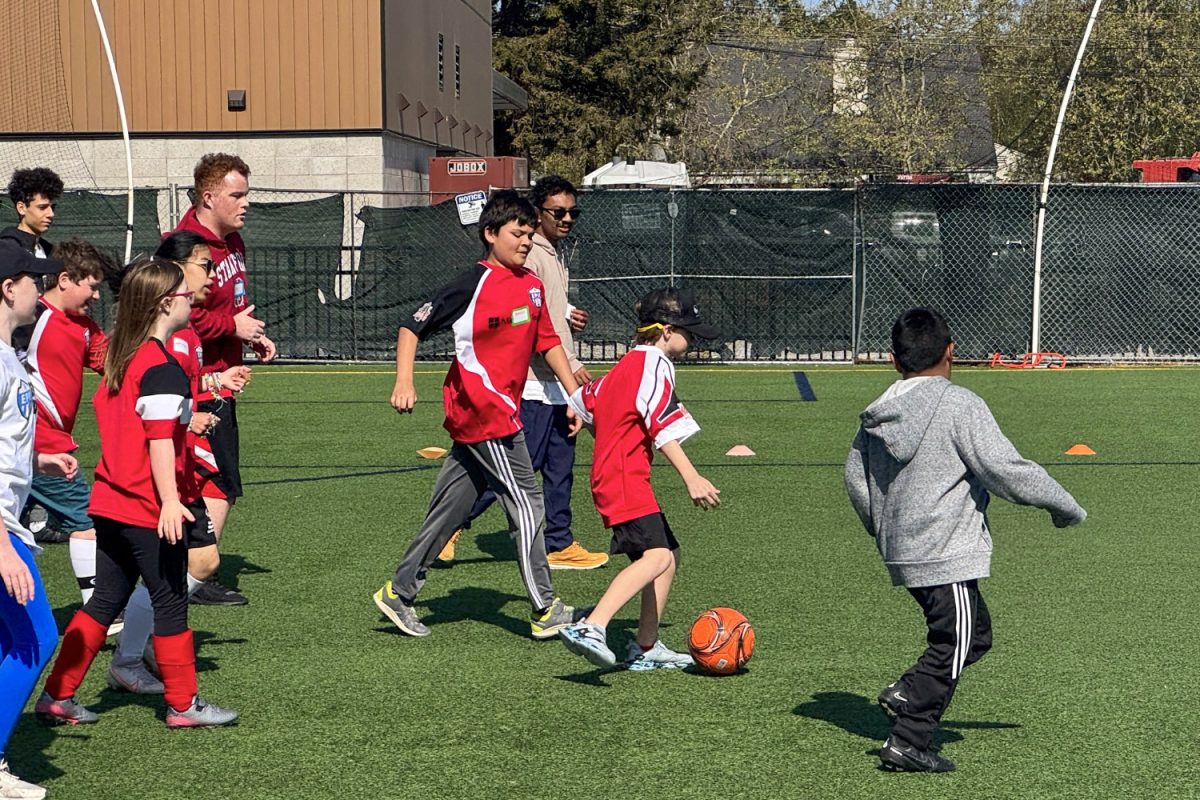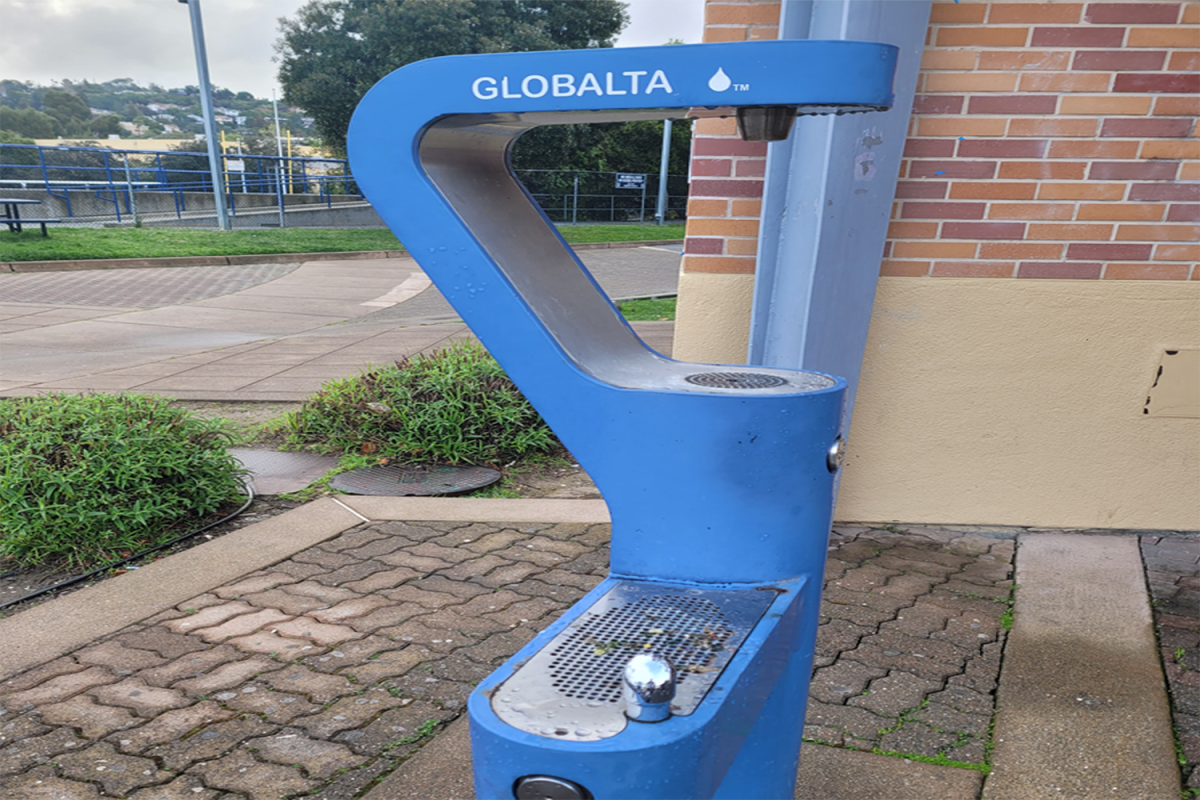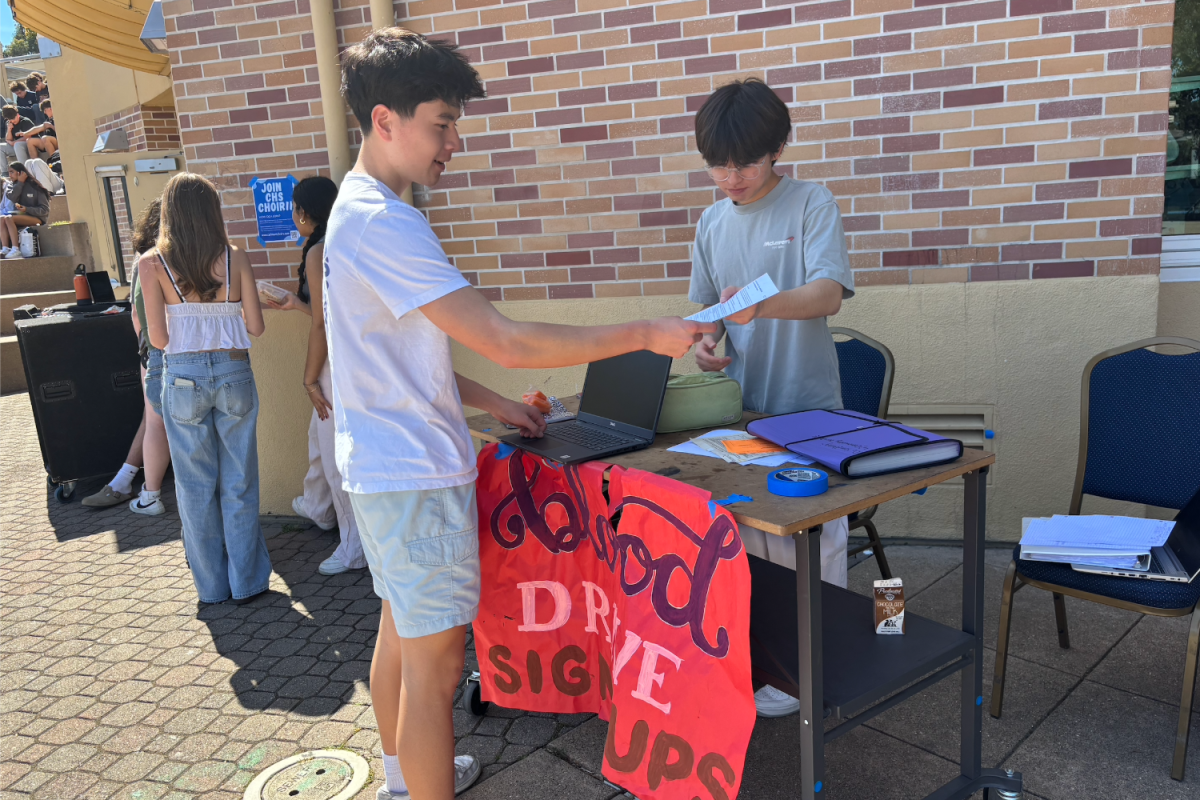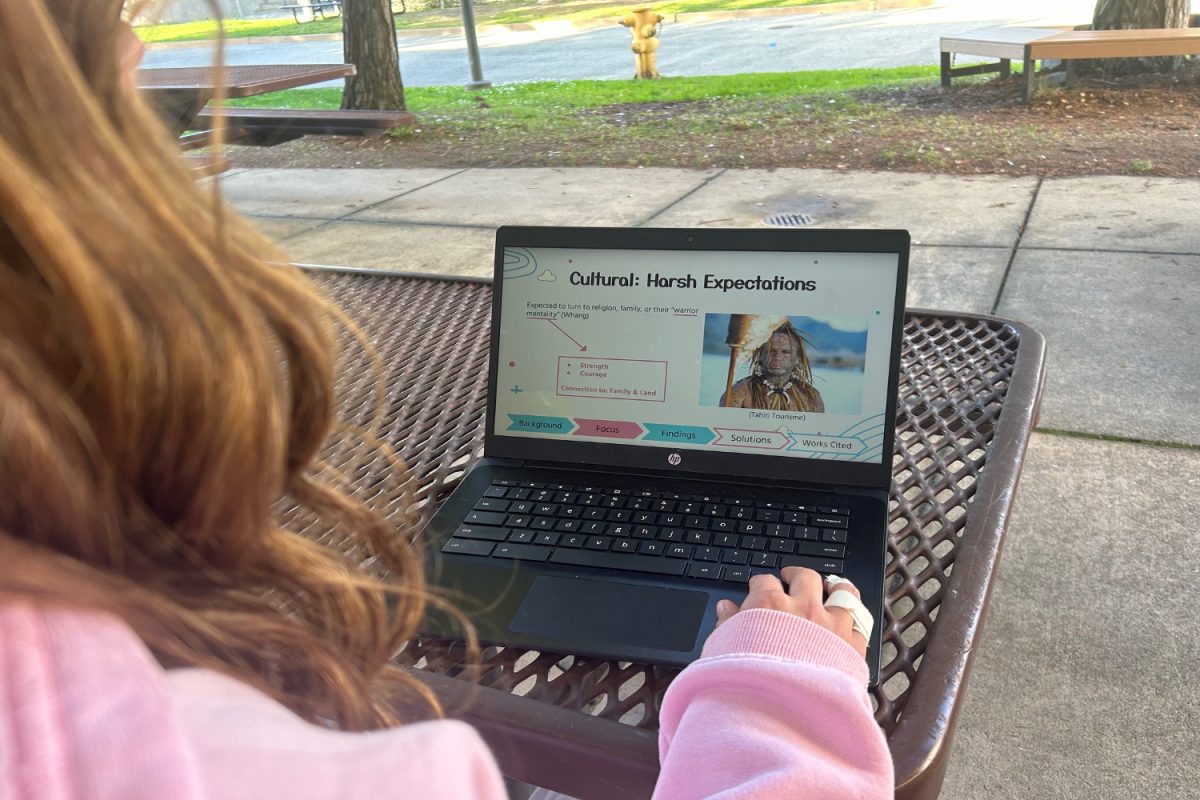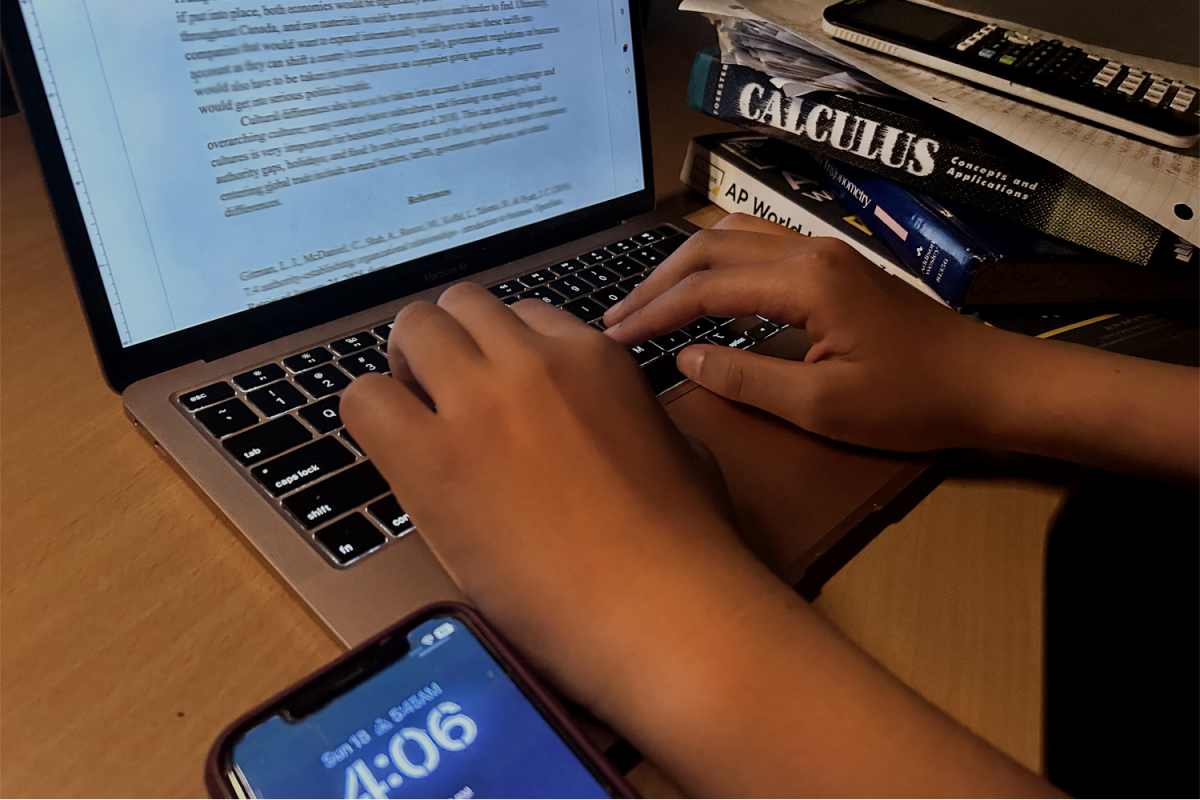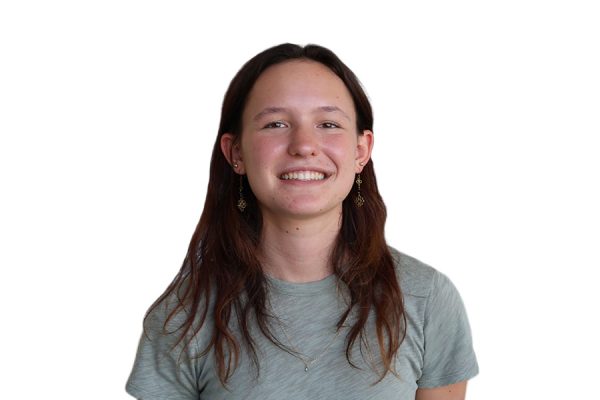The new school year was off to an inspiring start after the Welcome Back Assembly on Sept. 1, which featured Mickey Rowe, a legally blind, autistic actor turned speaker and disability awareness advocate.
Mickey Rowe’s journey to Broadway began at the Seattle Children’s Theater, where he discovered an unexpected comfort in the dark audience.
“As an autistic person, I didn’t get that many social interactions. But when I went to see a play at the theater or when I got to read a book, all of a sudden, I got to experience all of these rich, nuanced social interactions safely,” Rowe said.
Rowe had difficulty finding a career and performed on the street, struggling to make ends meet. When he followed his dreams to Broadway, Rowe became the first autistic actor to play the autistic character Christopher Boone in “The Curious Incident of the Dog in the Night-Time.”
“For the first time in my life, I was being embraced for being myself rather than being told to change as an autistic person,” Rowe said.
Before Rowe played Christopher Boone, two actors alternated the demanding role. When Rowe got the part, he played all nine shows per week by himself.
“I am a better actor because of and not in spite of my autism,” Rowe said.
After the show, audience members requested that Rowe speak at various events. Because of these inquiries, Rowe pursued a career he never imagined possible: public speaking.
“It felt so much more sustainable and ethical than when I was doing theater; I was making a real difference,” Rowe said.
Now, Rowe travels around the country, speaking at a variety of events. He even spoke at a corporate technology conference, and even though it didn’t seem like the right fit at first, he formed a connection with his audience just as he did at Carlmont.
“He’s really adaptable and really helped us. I thought his talk was really good and engaging,” said Simon Hua, a senior and member of the Associated Student Body (ASB) Assemblies Commission.
During the assembly, Rowe focused on one aspect of the typical high school experience: the burdens of feeling like an outsider. He emphasized acknowledging and uplifting each other’s differences rather than hiding them.
Rowe mentioned his own experiences feeling unwanted when he was younger and spoke on his struggle for love as an autistic person. When he was younger, his mother told him no one would want to marry him. This sentiment, which he believed at the time, led him to marry the first person who expressed interest in him. This marriage—built on insecurity and accessibility—ultimately created an abusive environment for Rowe, which he had to leave with his autistic son and become a single father until he married his current wife.
“There is so much danger in feeling like your differences are bad or shameful and not really realizing how powerful—how strong—your differences may be,” Rowe said.
Although Rowe has grown into adulthood, he still connected with many students in the room during the assembly.
“We hope that everyone will learn his story and personally grow from it,” said Jim Kelly, Carlmont’s ASB director.
After telling his story, Rowe took two final activities to the stage. First, he played a game of tug-of-war with students from the audience, followed by juggling a tennis racket, toilet plunger, and paint roller. While these two things may not belong in a typical assembly, they helped Rowe show that anything is possible.
“Be brave and jump in headfirst, even when you aren’t sure. Are you going to fail? Yes, sometimes. But will it be worth it? Yes,” Rowe said.


